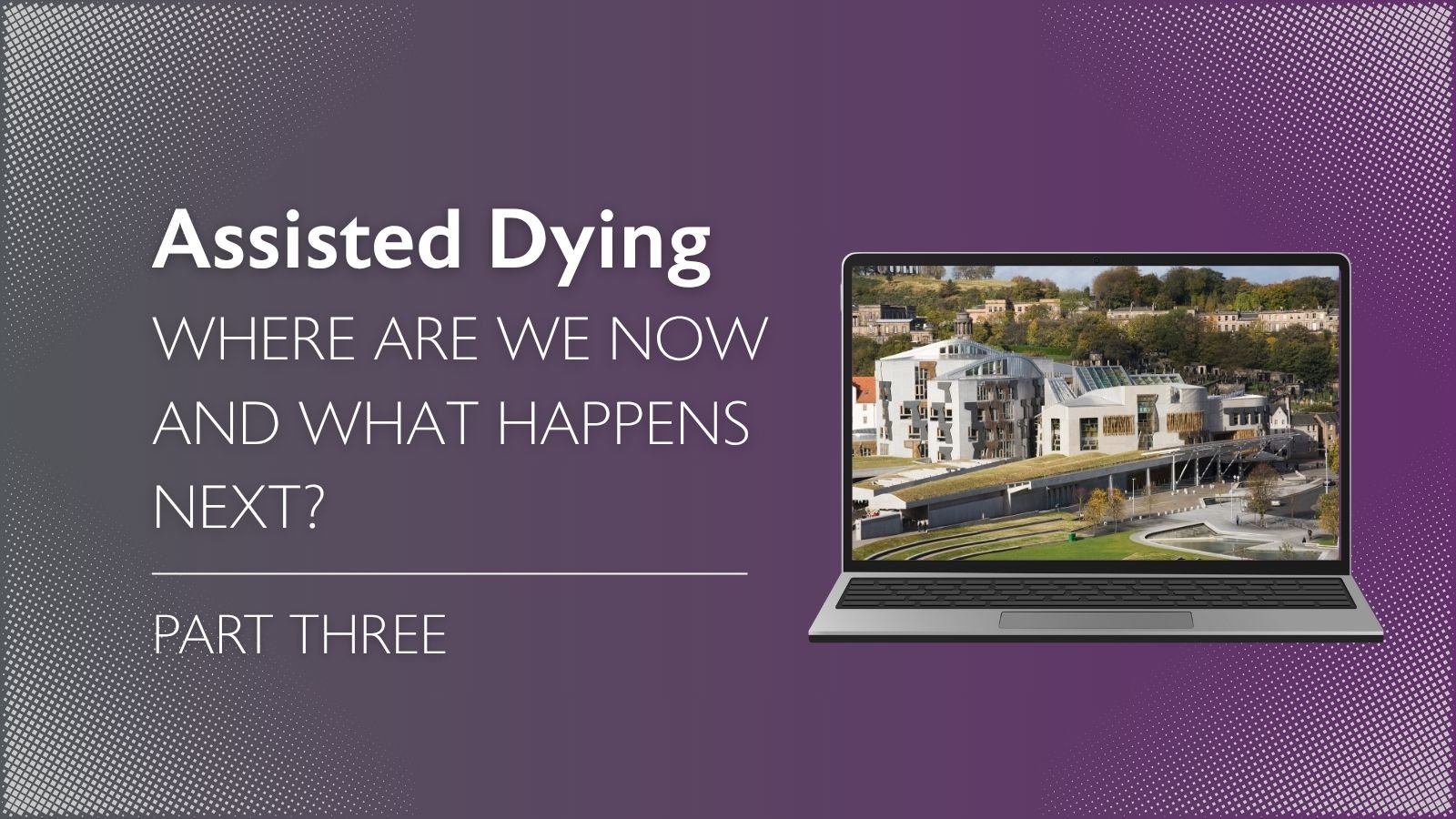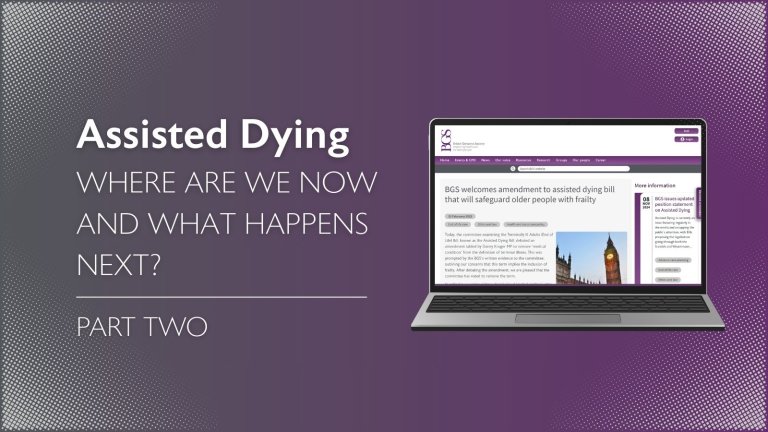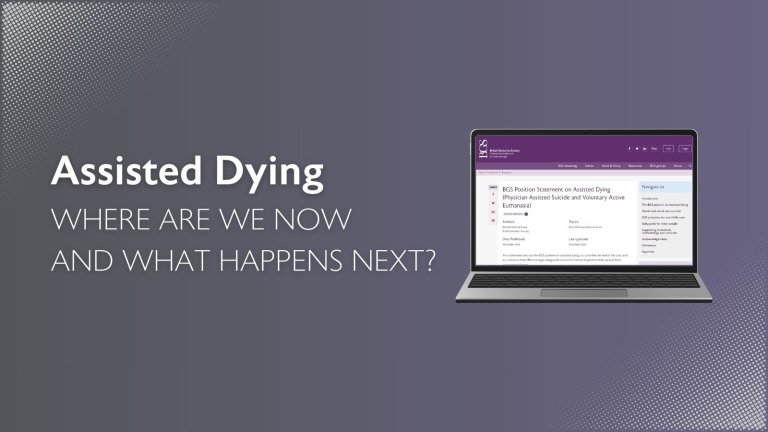In May, there were two parliamentary debates on assisted dying in the UK. On 13 May, the Assisted Dying for Terminally Ill Adult (Scotland) Bill was debated and voted on by the Scottish Parliament. Similarly, on 16 May, potential amendments to the Terminally Ill Adults (End of Life) Bill were debated in the House of Commons. In December and April, the BGS published blogs to get you up to speed with everything you need to know about assisted dying. This blog will explain what has happened since then, what will happen next, and actions you can take.
What has happened in Scotland?
The Assisted Dying for Terminally Ill Adult (Scotland) Bill was introduced as a Member’s Bill in 2024 by Liam McArthur MSP. It would allow terminally ill adults in Scotland to seek assistance to end their life, if they meet certain criteria. In Scotland, a Bill goes through three stages in the Scottish Parliament before it can become an Act.
The first stage ran for one year until May 2025. At this stage, the bill was assigned to the Health, Social Care and Sport Committee to scrutinise and report on its general principles. This involved the committee taking written and oral evidence from a range of stakeholders and producing a report to present to parliament. The stage one report was published on 30 April and made no overall recommendation on the general principles of the bill, stating the issue is a matter of conscience for MSPs. Instead, the report highlights a number of areas which would benefit from further consideration at stage two. Stage one ended with a debate by MSPs in the Scottish Parliament on the principles of the bill, and a vote to decide whether it should proceed to stage two. MSPs voted to agree with the general principles of the bill, with 70 voting for and 56 voting against.
What happens next in Scotland?
The Scotland Bill is currently at stage two, where all MSPs can propose amendments. These amendments are debated and voted on by the Health, Social Care and Sport Committee. If any amendments are agreed at stage two, a new amended version of the bill is published to be considered at stage three. At this stage, MSPs can propose further amendments which are debated and voted on in the Debating Chamber. Following this, MSPs will vote on whether to pass the bill. If it passes, it will proceed to become law.
What is happening in England and Wales?
The Terminally Ill (Adults) Bill reached the end of its committee stage in March. For information about this stage and how the BGS influenced changes to the bill, check out our previous blog. The bill is currently in report stage, where MPs can consider further amendments. All MPs have the opportunity to table amendments and a selection of these have been selected by the Speaker of the House for debate in parliament. The amendments have been grouped in two and the first group was debated on 16 May. The second group will be debated on 13 June and a vote will be held. If time runs out before all amendments are debated, then the report stage will continue on 20 June. After this, there will be a third reading where MPs will vote to approve the bill. If it passes at this stage, then it will go to the House of Lords for consideration. If it does not pass, the bill falls. In Wales, if the bill is approved in Westminster, the Senedd Cymru (Welsh Parliament) will vote to decide if the bill should apply to Wales.
What does the BGS think?
The BGS is opposed to the legalisation of assisted dying and published a position statement last year. We believe that palliative and end of life care needs to be improved before a change in the law on assisted dying is considered, and we are not confident that effective safeguards can be developed to protect older people from harm.
We are concerned that the private member’s bill process in the House of Commons has been rushed and lacked important expert scrutiny. The process did not allow for expert policy development before the bill was drafted and lacked robust consultation. There was also a lack of transparency regarding the bill’s timelines and processes.
What can I do?
If you live in England and Wales and have concerns about the bill, you can write to your MP ahead of the third reading in the House of Commons, expected to be 13 or 20 June. The BGS has put together a template letter, outlining our concerns about the bill process, that you can edit before sending to your MP. You can find contact details for your MP on the UK Parliament website.
If you live in Scotland, you can use our template letter aimed at MSPs. To find contact details for your MSP, refer to the Scottish Parliament website.


